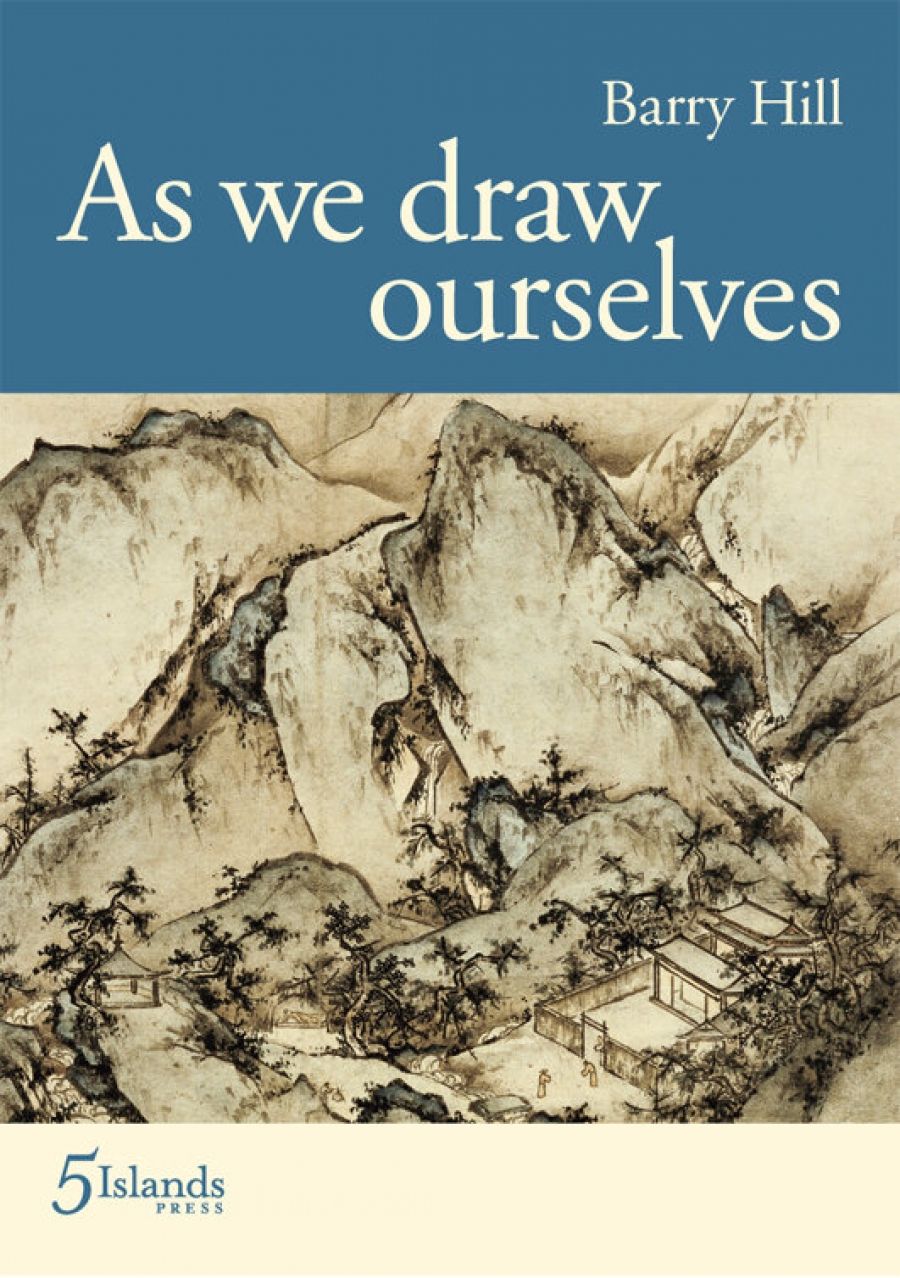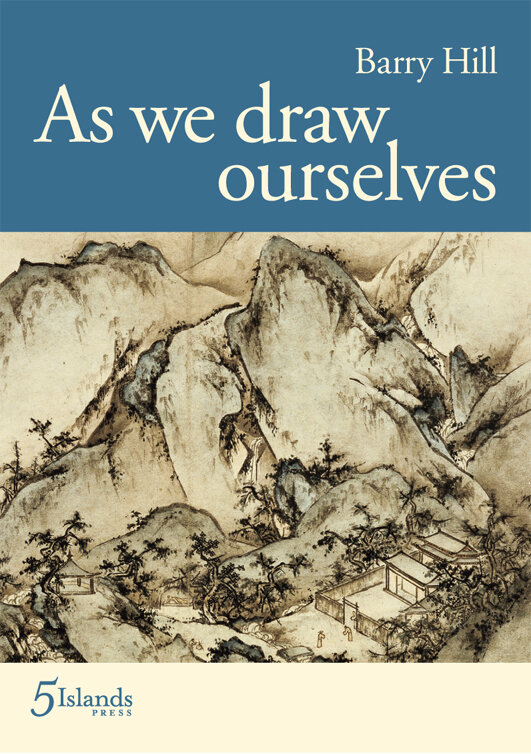
- Free Article: No
- Contents Category: Poetry
- Review Article: Yes
- Article Title: Pilgrimages
- Online Only: No
- Custom Highlight Text:
This sixth poetry collection by Barry Hill is a fine, intense book of journeying and returns. Poems are based on pilgrimages made in the flesh (to Carrara, to Assisi, to Kyoto) and on those made in the mind as we visit works of art. But there is nothing blandly celebratory about these pilgrimages: the focus is always on the self of the journeyer. Indeed, at a deeper level, its poems are really about the experience of becoming, of being ‘drawn’. And one of the book’s central metaphors is the way there is a double process going on in the creation of the self: we emerge as human beings out of inchoate experience in the way that a sculpture emerges from stone; and, at the same time, we are shaped by the loved ones who surround us.
- Book 1 Title: As We Draw Ourselves
- Book 1 Biblio: Five Islands Press, $21.95 pp, 98 pp
- Book 1 Cover Small (400 x 600):

- Book 1 Cover (800 x 1200):

This is best captured in the second poem in the second of the book’s three sections, ‘Crossing St Peter’s Square after seeing the Torso Belvedere’. Here, the speaker emerges from seeing the famous fragment into a colonnade and thence into the welcoming public space of a square, where he meets his partner. Stone is one of the book’s obsessions: there is a fourteen-sonnet sequence devoted to Michelangelo (who was unsurpassed at releasing the human from the stone in which it was encased); and a six-page poem details a trip made to Carrara, the source of Michelangelo’s stone and still a working quarry five hundred years later. ‘To the white mountain we come to excavate, cut ourselves back’, says the poem. In what must be a moment of allegorical narrative about the respective selves which have been drawn out, the narrator steals a small piece of marble while his partner is buying an amphora.
Stone, in these poems, may be the thing we emerge from, but the second element that looms large is water. On my first casual reading of this book, I couldn’t understand why as central a poem as ‘Crossing St Peter’s Square’ was preceded in its section by a poem about the Tiber seen from the Ponte Garibaldi; but once one sees that water is the counterpart to stone, things become a little clearer. Though this poem stresses how absolutely uninterested the water is in the momentous human histories that have been played out along its banks – ‘with that / innocent look / that nothing happened here / nothing green remembers’ – water as a shaping force is a recurrent image.
All this moves us from the second section of the book to the first: poems based on images from art or photography. The first sequence of six poems is about a Chinese doctor who climbed the sacred Mount Hua at the end of the fourteenth century. These poems are, like any poems about mountains, about rock, but are concerned with the way earth is balanced by sky, female by male. There are also poem sequences responding to Bonnard, Nolan, Rover Thomas and Käthe Kollwitz. Significantly, the section is concluded by a fine suite of poems based on photographs of rock and water.
Another of the book’s unifying themes is a set of puns based on the notion of drawing. We meet drawing in the literal sense in the early poem, ‘Trying to Draw’, which, while detailing the difficulty of drawing the human form, meditates on issues of faithfulness (in representation, as in relationships) on desire (‘there is no salvation for touching. There is right looking / reverence and exactitude, you hope’) and on the ethical status of art. But ‘drawing out’ (the origin of our word ‘education’), ‘drawing in’ and ‘drawing back’ are also generated out of this idea.
In keeping with this general sense that this book is highly sensitive to the balance of opposites, it is possible to see oppositions in the very styles of the poems. There is, for example, a fairly muscular, strong style that one is tempted to 9-call male though ‘Michelangelesque’ might do as well. But there are poems that tread a little more lightly, whose concept of themselves is a little less rock-like.
The Chinese poems belong here, as do some from the book’s final sequence, ‘Turnips in Kyoto’. These stylistic binaries could be expressed in any number of ways: male/female, Western/Eastern, rock/water, outward/inwards, colour/line and so on; but the second poem of the ‘Fantastic Mountain’ sequence will provide an example of the second, more gestural style while, at the same time, giving some sense of the sort of thematic binaries I have been speaking about
how as we draw ourselves / toward clouds / slopes wrap us / twist and knot / slow us like rocks / You turn one bend / in the path and there with his head back / is your father / brow mountainous /the bridge of his angry nose / nothing you will ever cross.
Finally, this is a book sensitive to the movement backwards as well as the movement outwards. Its final section, ‘Landings’, has many poems of return, and exploits its title’s many connotations. Some of these are celebrations of erotic and familial love, and they can be rather cloying: ‘They have not changed, they are only more beautiful, your loved ones.’ They also involve a not entirely satisfactory projection of the writer as a third-person character in his own drama: ‘Will this end? he wondered later / hovering over her slow, pink smile.’ But the movement back seems correct poetically, as the reverse of the obsession with being drawn out into the world of experience.
As We Draw Ourselves is both intense and complicated. The fact that it never resorts to predictable responses about major cultural references such as Kyoto, Chinese art or Michelangelo is a marker that what drives these poems is an entirely individual vision about the self and its exploratory journeys.


Comments powered by CComment